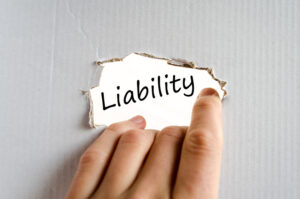Understanding Liability Insurance: Protecting Your Business and Assets Liability Insurance
Liability Insurance
Liability insurance is a vital form of coverage that protects individuals and businesses from legal liabilities arising from accidents, injuries, or damages. It provides financial protection and support in the event of a lawsuit, making it an essential tool for risk management. There are several types of liability insurance available in the market, but one stands out as the most common and widely used – General Liability Insurance.
General Liability Insurance:
General Liability Insurance (GLI) is the most prevalent form of liability insurance, primarily designed to protect businesses from claims related to bodily injury, property damage, and advertising or personal injury. It covers a broad range of risks and provides coverage for both legal costs and potential damages awarded to the injured party.
Here are some key features and coverage aspects of General Liability Insurance:
1. Bodily Injury and Property Damage:
GLI provides coverage for bodily injuries caused to third parties or customers due to the negligence of the insured business. It also covers property damage caused by the insured’s products, services, or operations.
2. Advertising and Personal Injury:
This coverage protects businesses against claims of libel, slander, copyright infringement, false advertising, and other related offenses. It provides coverage for legal costs and damages associated with such claims.
3. Medical Payments:
Medical payments coverage under GLI reimburses medical expenses for injuries sustained by a third party on the premises of the insured business or due to their operations. This coverage can help avoid lengthy legal battles and settle smaller medical claims quickly.
4. Legal Defense:
General Liability Insurance covers legal defense costs, including attorney fees, court costs, and settlements or judgments up to the policy limits. It ensures that businesses can affordably defend themselves against claims, even if they are not liable.
5. Completed Products and Operations:
GLI typically includes coverage for completed operations, implying that it protects a business even after delivering a product or completing a service. If a prior service or product causes injury or damage, the policy provides coverage for claims arising from those completed operations.
6. Additional Coverages:
Many GLI policies also include coverage extensions to meet specific business needs. These additional coverages may include employee benefits liability for claims related to employee benefit plans, hired and non-owned auto liability for third-party bodily injury or property damage caused by vehicles used for business purposes, and more.
In summary, GLI is the most common liability insurance used by businesses of all sizes and industries. It provides a wide range of coverage, protecting against bodily injury, property damage, advertising or personal injury claims, and more. By investing in GLI, businesses safeguard their financial stability and reputation, enabling them to focus on their core operations without being burdened by legal liabilities.


